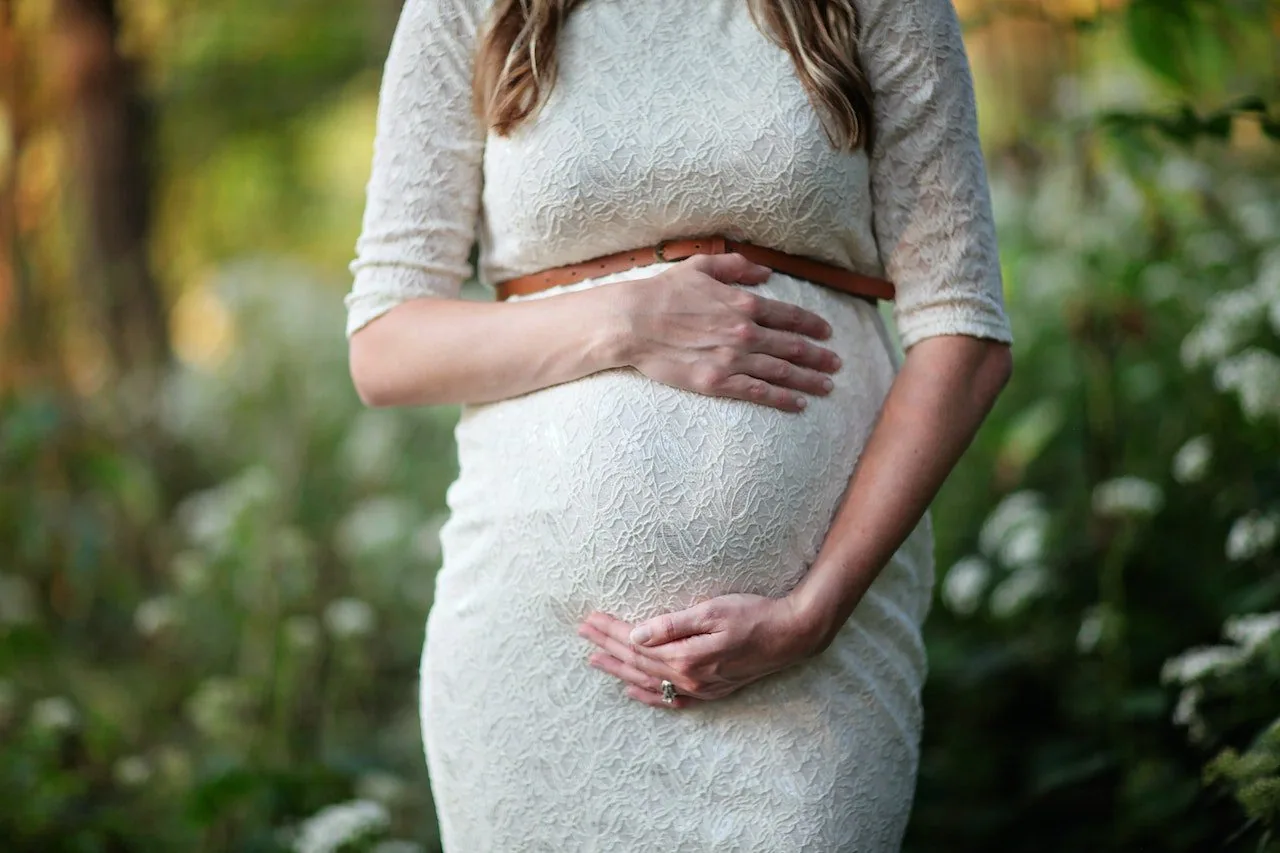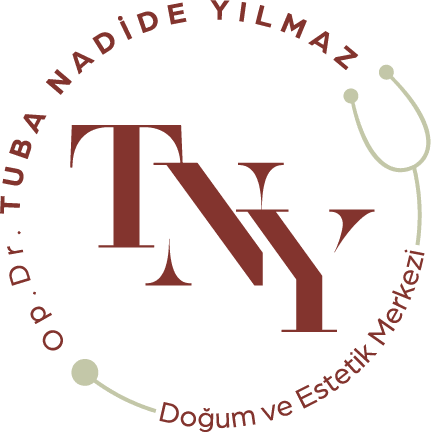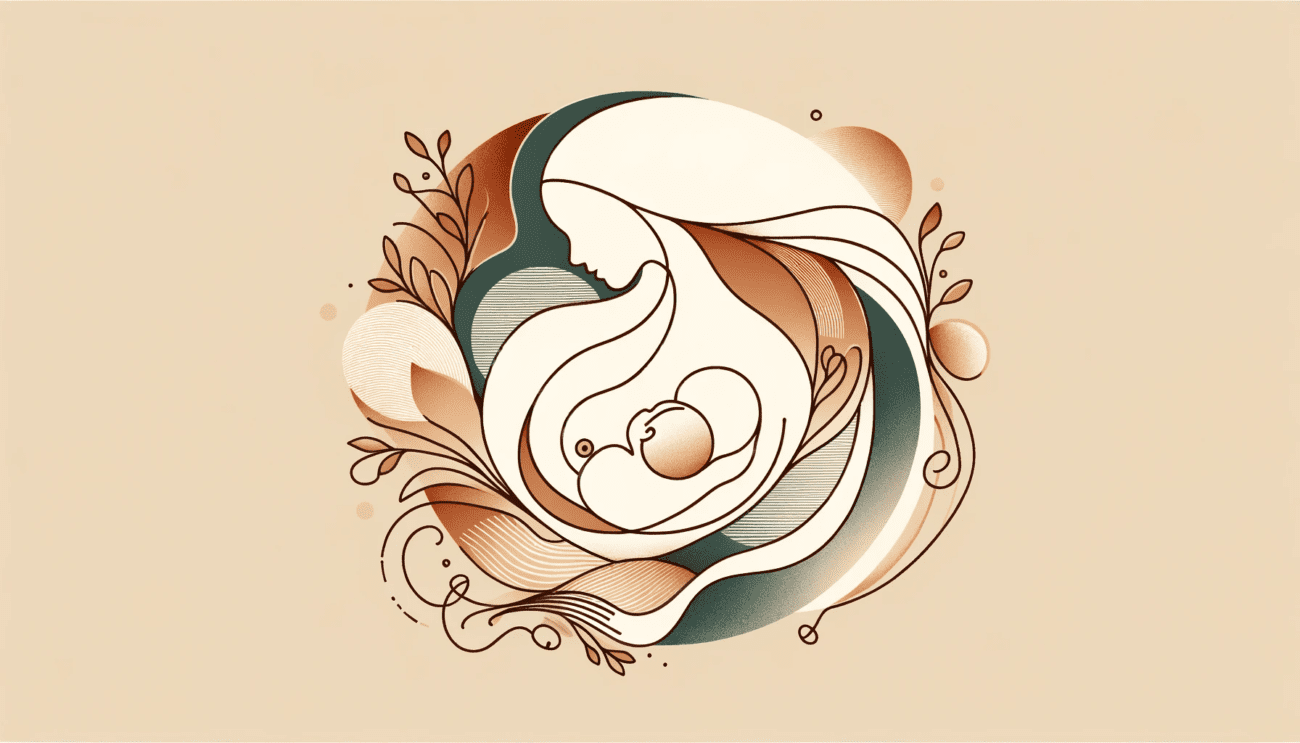As you embark on this beautiful journey with your newborn baby, your body begins its own healing process and returns to its pre-pregnancy state. One of the many changes you may experience during the puerperium is the return of your menstrual cycle. This transition can come with many emotions and questions and it is important to understand what is normal and what to expect.
When to Expect the Return of the Menstrual Cycle?
When your menstrual cycle returns after giving birth depends largely on your breastfeeding practice. For non-breastfeeding mothers, the menstrual period usually starts 4 to 6 weeks after delivery. However, for fully breastfeeding mothers, the return of the menstrual cycle, including at night, usually occurs when the baby starts supplementary foods or when night breastfeeding is stopped. This is due to the hormonal effects of breastfeeding on the body; hormones that promote milk production can suppress the production of hormones that regulate the menstrual cycle.
What are the First Puerperium Periods Like?
Your first postpartum period may differ from your pre-pregnancy periods. You may experience more irregular periods, more severe cramping pains, heavier bleeding and small clots in your menstrual blood. These changes are normal, but extreme cases, such as very large clots or extremely heavy bleeding, may require medical attention.
Factors Affecting the Return of the Menstrual Cycle
The most important factor affecting the timing of the return of the menstrual cycle is breastfeeding. Full and frequent breastfeeding can delay the return of the menstrual cycle, because in the case of lactational amenorrhea, the hormones needed for breastfeeding suppress the production of hormones that regulate the menstrual cycle. However, when the baby starts formula feeding or switches to solid foods, the menstrual cycle may return earlier.
Signs and Symptoms Associated with the Return of the Menstrual Cycle in the Puerperium
New mothers may notice symptoms that may signal the return of the menstrual cycle, such as hormonal changes, changes in vaginal discharge and menstrual cramping. It is important to monitor these changes and discuss any unusual symptoms with your health care provider.
Menstrual Health and Hygiene Management in the Puerperium
New mothers are advised to use sanitary pads instead of tampons for the first postpartum bleeding (lochia) to reduce the risk of infection. After the first postpartum examination, usually 6 weeks later and with your doctor's approval, women can start using their preferred menstrual products again. It is also very important to maintain good hygiene practices and stay hydrated.
The Effect of Breastfeeding on the Menstrual Cycle
For many new mothers, breastfeeding is both a physical and emotional journey, and this process can also affect the timing of the resumption of the menstrual cycle. In a condition known as lactational amenorrhea, full and frequent breastfeeding can delay the return of the menstrual cycle. This is associated with the body's production of the hormone prolactin, which supports milk production, suppressing the production of other hormones that regulate ovulation and menstruation.
Breastfeeding and Menstrual Cycle
Full-time breastfeeding mothers may notice that their menstrual cycle does not return for longer after giving birth. This is even more pronounced with frequent breastfeeding, including night feedings. However, when formula feeding or switching to solid foods, the menstrual cycle may return earlier. Mothers who do a combination of breastfeeding and bottle feeding usually see their periods return between 6 and 12 weeks after giving birth.
Changes in the menstrual cycle during breastfeeding
The changes associated with the return of the menstrual cycle during breastfeeding can vary from mother to mother. First periods may be lighter or heavier, and some mothers may experience a temporary decrease in milk production during menstruation. Hormonal changes can cause tenderness in the nipples during breastfeeding, but these changes are usually temporary.
How to Manage the Effect of Breastfeeding on Menstruation?
If your period returns while breastfeeding and you notice a decrease in milk production, continuing to breastfeed frequently, drinking plenty of fluids and eating a balanced diet can support milk production. If you have concerns or questions about the effects of menstruation while breastfeeding, it may be helpful to consult a health professional.
Self-Care in the Puerperium: Health and Hygiene Management
The postpartum period is a time of great adaptation for new mothers, both physically and emotionally. Taking care of your own health during this period can speed up your recovery and improve your overall well-being. Here are some tips for managing health and hygiene during the puerperium:
Hydration and Nutrition
Adequate hydration is one of the key components your body needs during postpartum recovery. Drinking plenty of water supports milk production and helps your body recover. In addition, a balanced and nutritious diet will help you maintain your energy levels and get the necessary nutrients.
Physical Activity
With your doctor's approval, light exercise can help your body recover. Low-impact activities, such as walking, are beneficial for both your physical and mental health. However, make sure you talk to your health professionals before you start exercising.
Adequate Rest
Caring for a new baby can be tiring, especially when it requires frequent feedings at night. Try to get as much rest as possible and take time to rest while your baby sleeps. Getting support from your partner or family can increase your rest time.
Hygiene
Use sanitary pads to manage postpartum bleeding (lochia) and start using tampons after a doctor's check-up. Showering regularly and wearing clean clothes can make you feel better and reduce the risk of infection.
Emotional Support
In the postpartum period, hormonal changes and lack of sleep can cause emotional fluctuations. When you feel sad, anxious or stressed, it is important to express your feelings and ask for support. Talking to friends, family or a professional counselor can support your emotional wellbeing.











